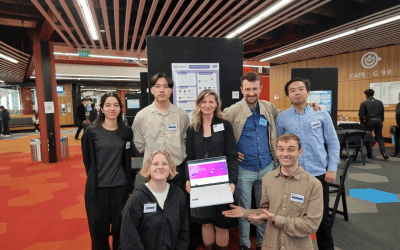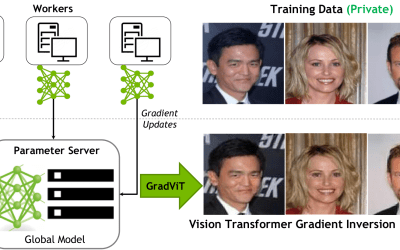Materials
Here, we provide comprehensive and informative content on various topics of interest to our readers. In our efforts to do so, we have compiled a list of materials that we believe are relevant to the subject matter being discussed but have not been authored by us. These materials may include, but are not limited to, research papers, articles, blog posts, videos, podcasts, and other forms of content from credible sources.
Introducing Project: Guidelines for the Ethical and Practical Use of Generative AI for University Students
We are excited to showcase a summer research project by our student Terence Zhang with guidance from Dr Thomas Lacombe. showcase a summer research project led by our student, Terence Zhang, under the expert guidance of Dr. Thomas Lacombe. This initiative is a part of...
Student’s Presentation in the 4th interRAI Annual Knowledge Exchange
Our PhD student, Cristian Gonzalez Prieto, alongside Associate Professor Sarah Cullum from the Faculty of Medical and Health Sciences at the University of Auckland, recently presented his research at the 4th interRAI Annual Knowledge Exchange. His talk, titled...
Research Project: How do we know those Artificial Intelligence models are fair? An overview of bias evaluating frameworks for AI models
Under the supervision of Professor Gill Dobbie and Dr Vithya Yogarajan, this research project by Kejun Dai reviews frameworks for evaluating bias in artificial intelligence models. Situated within the broader "Ethical Computing" initiative led by Professor Gill...
Report on AI and healthcare: Capturing the benefits of AI in healthcare for Aotearoa New Zealand
Image: A painting of a futuristic nurse in rural New Zealand created using Stable Diffusion on huggingface.co This recent report on AI and healthcare is from the Office of the Prime Minister’s Chief Science Advisor. FOREWORD: This report was requested by Prime...
Research Seminar: Challenges in Annotating Datasets to Quantify Bias
Gill delivered a presentation at the ARC Training Centre in Data Analytics for Resources and Environments (DARE), The University of Sydney, where she shared insights from her research focused on quantifying bias in language models with the ultimate goal of debiasing....
Project “Teaching Materials for AI Ethics” at Capstone Event
Following our recent post, the group of "Teaching materials for AI Ethics" has successfully presented at the Capstone event (photo above). Project description: This year, the team EthicAI developed a resource with real-world use cases of the latest AI technologies,...
Capstone Project Showcase: Teaching Materials for AI Ethics
This semester, two groups of students from the School of Computer Science Capstone course (COMPSCI 399) worked on a project aiming at developing teaching materials for AI Ethics. The goal was to develop an interactive website that introduces students to the potential...
Attacks on Private Training Data
(Figure courtesy of Dr Ali Hatamizadeh, the author of GradViT) Recent studies have shown that training samples can be recovered from the corresponding gradients. This phenomenon is called Gradient Inversion (GradInv) attacks. The principle behind GradInv is to learn...
Seeing Like a Toolkit: How Toolkits Envision the Work of AI Ethics
Richmond Y. Wong, Michael A. Madaio, and Nick Merrill, "Seeing Like a Toolkit: How Toolkits Envision the Work of AI Ethics," Proceedings of the ACM on Human-Computer Interaction, vol. 7. doi: 10.1145/3579621 Abstract: Numerous toolkits have been developed to...
Better Images of AI
Image source: Rens Dimmendaal & David Clode / Better Images of AI / Fish reversed / CC-BY 4.0 The content of this post is taken from: [Better Images of AI] Did you observe that common images used in news stories and marketing material about AI are often...








